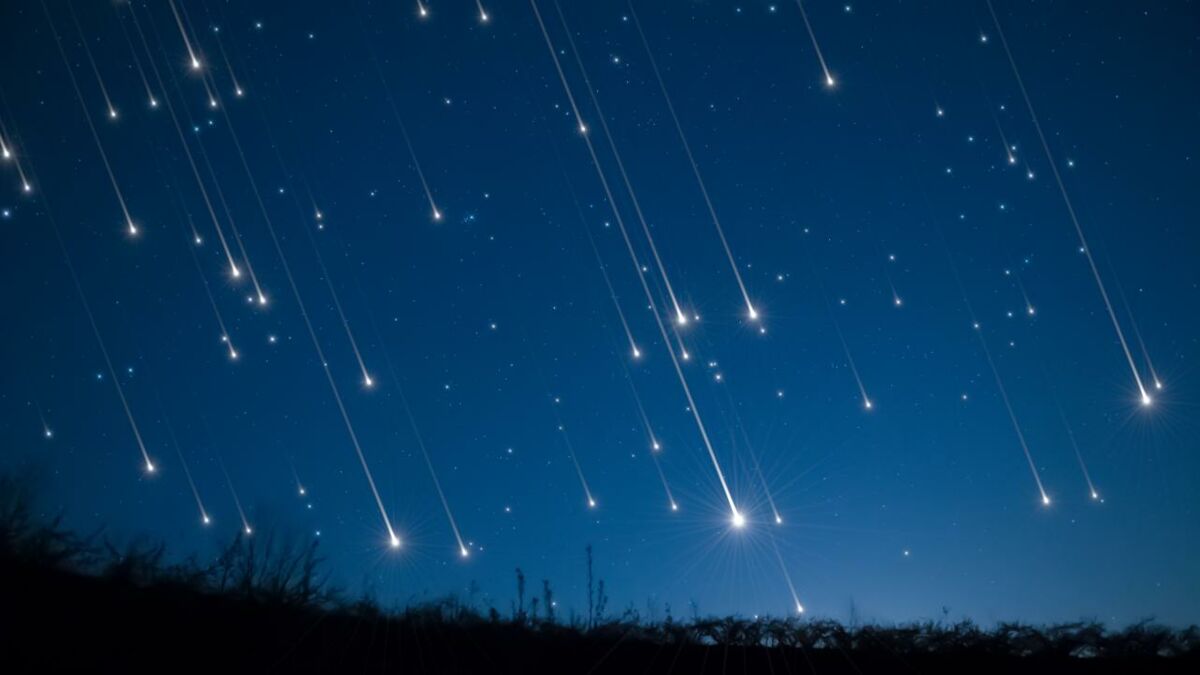meteor shower tonight Meteor shower showers perseid where when ursid peak iowa next thrillist express getty
The night sky is a mesmerizing tapestry of celestial events that captivate skywatchers and astronomy enthusiasts alike. Among the most enchanting phenomena are meteor showers, which regularly grace us with their brilliant displays. Upcoming meteor showers offer the perfect opportunity for stargazers to witness nature’s fireworks. Below, we provide essential information on two remarkable meteor showers that are not to be missed.
Tonight's Meteor Shower: A Celestial Spectacle

Tonight’s meteor shower promises to be an extraordinary event, offering stargazers the chance to witness numerous meteors streaking across the sky. Meteor showers occur when Earth passes through the debris field left behind by comets. As these tiny particles enter our atmosphere at incredible speeds, they generate intense friction that leads to their glowing trails, or meteors, which we see as shooting stars. Tonight, conditions are particularly favorable for viewing, with minimal moonlight interference and clear skies, so grab your favorite blanket and find a comfortable place to lay back and enjoy the spectacle.
The Perseid Meteor Shower: A Summer Tradition

The Perseid meteor shower is one of the most popular and reliable meteor showers of the year, taking place annually in August. Known for producing bright and fast meteors, the Perseids provide an unforgettable viewing experience. As Earth moves through the debris trail of Comet Swift-Tuttle, this shower typically peaks around mid-August, offering a stunning display for those willing to stay up late or rise early before dawn.
For optimal viewing of the Perseids or any other meteor shower, it is advisable to head to a location far away from artificial lights, such as streetlights or buildings. The darker the skies, the better your chances at seeing a meteor in all its glory. Additionally, it’s beneficial to allow your eyes some time to adjust to the darkness—this can take about 20 minutes. Not only does this enhance your night vision, but it also increases the likelihood of spotting those elusive meteors as they dart across the sky.
Before heading out to witness a meteor shower, check the weather forecast and choose a night when clouds are minimal. Engaging in astronomical events such as meteor showers can be an incredible way to connect with nature and contemplate the vastness of the universe. Whether you are planning to watch tonight’s shower or the approaching Perseids, each shower is unique and offers its own charm.
In addition to simply looking up at the sky, consider bringing along a pair of binoculars or a telescope. While these instruments may not enhance meteor viewing itself, they can enhance your overall stargazing experience and allow you to observe other celestial bodies in the vicinity, like planets, star clusters, and the moon. Pair your experience with snacks or a warm drink for a complete night of outdoor enjoyment.
As you prepare for the dazzling celestial displays ahead, make sure to share your meteor-watching experiences on social media or with friends and family. Not only do these events create lasting memories, but they also help foster an appreciation for the wonders of astronomy. Whether you're an amateur astronomer or simply a curious observer, meteor showers offer a chance to pause, reflect, and gaze in wonder at the universe beyond our world.